'Do something for a change' - Flooded farmers
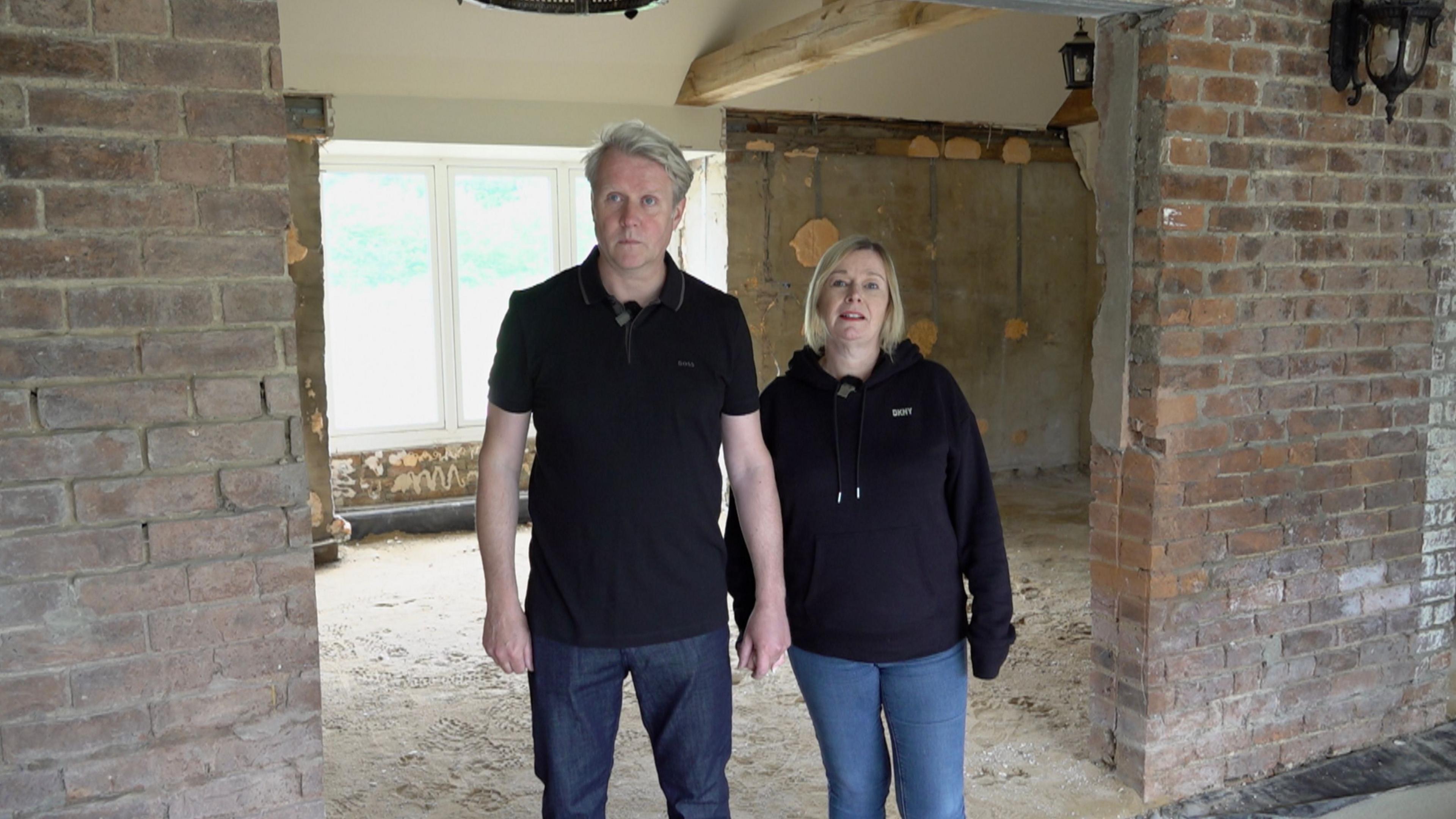
Phil and Sonia Wadley's home near Horncastle was destroyed by flooding last autumn
- Published
Homeowners and farmers in Lincolnshire have issued a plea to whoever forms the next government to take flooding more seriously.
The county has seen Met Office rainfall records broken in recent years, with hundreds of homes flooded and thousands of acres of farmland under water.
In the storms of last autumn the flood defences of at least a dozen rivers in Lincolnshire were badly damaged.
An Environment Agency investigation concluded the design capacity of many flood defences had been exceeded.
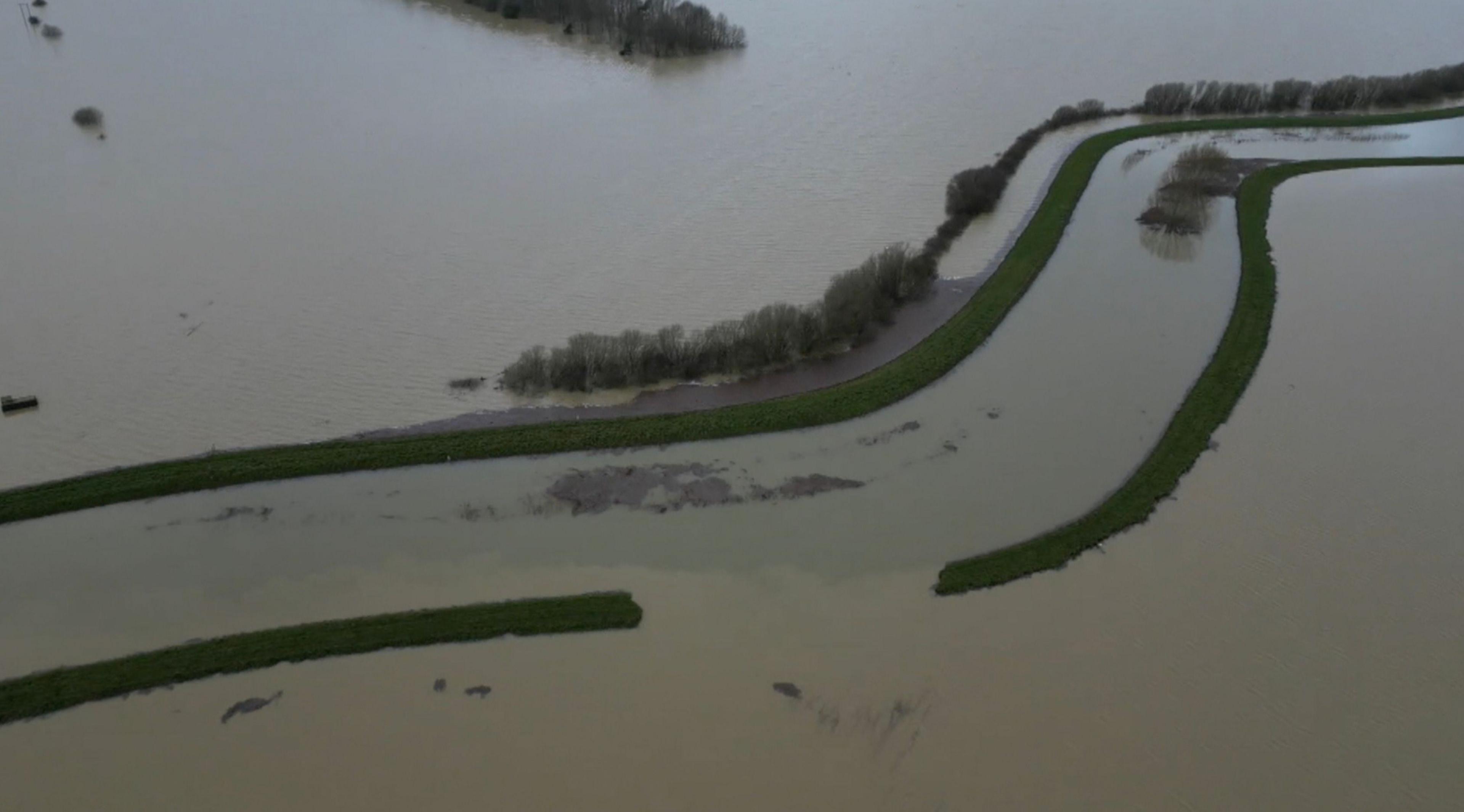
A breach in the Barlings Eau river near to Lincoln, one of a dozen flood defences to be damaged over the winter in Lincolnshire
Sonia and Phil Wadley, who live near to Horncastle, were flooded eight months ago. Their home was virtually destroyed in a single night.
But Mr Wadley said they were still waiting for answers about why the flooding happened and what could to be done to defend their property in the future.
"Whether it is Labour, Conservatives or whatever, do something. Don't talk about it just do something for a change," he said.
Sonia Wadley said they were stuck in limbo: "The problem is that we could rebuild it and it could happen again".
"We just want that piece of mind knowing that we have got some flood defences in place."
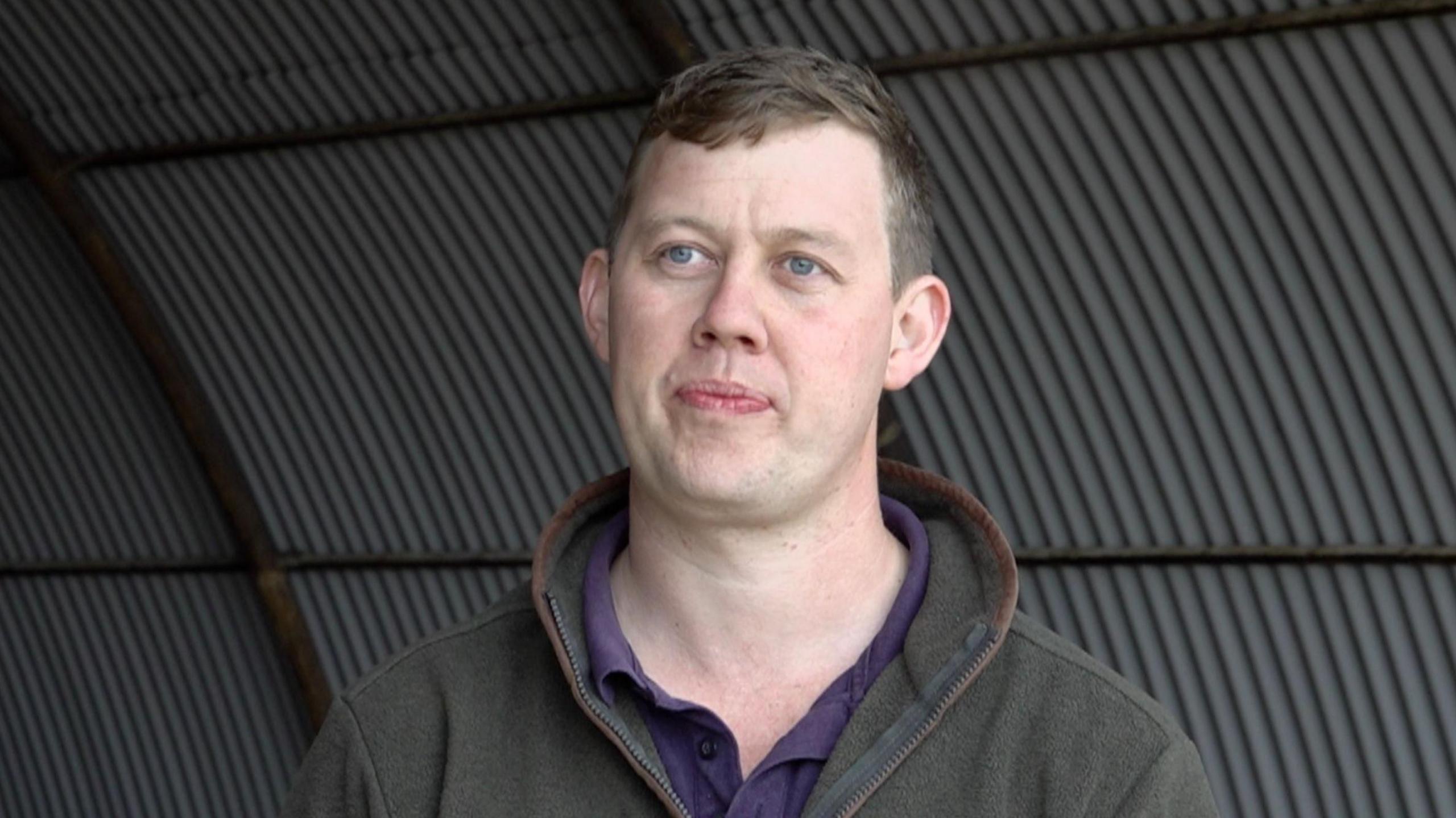
Farmer Henry Ward wants the next government to pay farmers to store floodwater
Lincolnshire farmer Henry Ward wants the next government to prioritise the threat of flooding.
"I hope the incoming government has real ambition on how we manage water in this country," he said.
Parts of Mr Ward's farm near Lincoln have been regularly flooded since 2019 and he has not been able to grow crops on affected land.
He wants a change in policy that will see farmers paid to store floodwater and protect towns and villages.
"We are not good - and this is an understatement - at managing floodwater. We could take of advantage of land like this to put into flood storage schemes."

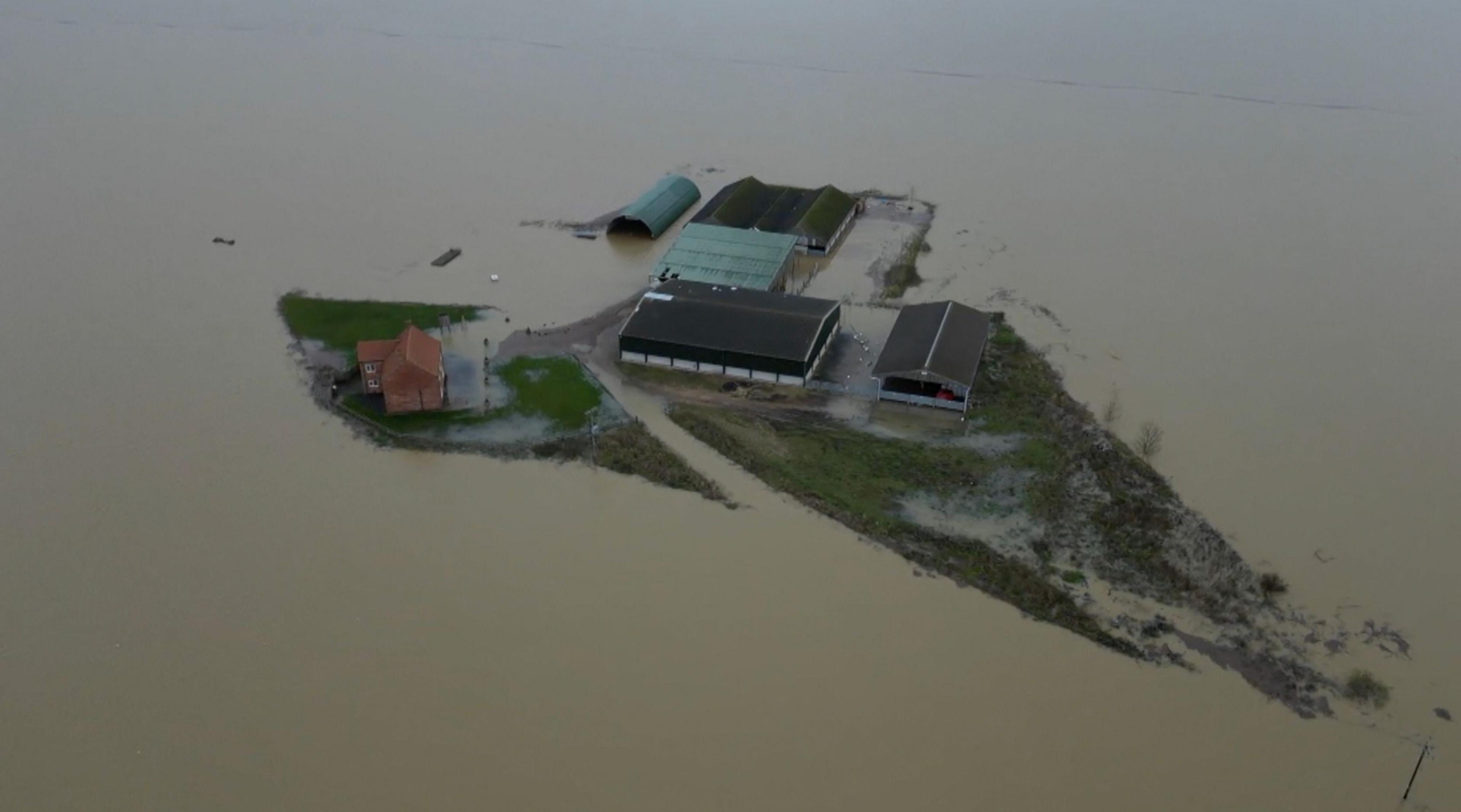
Henry Ward's farm at Shortferry is one of several in the area that has been regularly flooded in recent years
A significant amount of the rain that falls on Lincolnshire needs to be pumped out to sea.
The Witham Fourth Drainage Board is one of the organisations responsible for managing water in the low-lying county.
Its chief executive Peter Bateson said he was always looking for certainty in the longer term when it comes to flood defences.
He had a clear message for the next Floods Minister: "It's no good having an annual budget for anything because we can't invest in people and machinery to do a job over a number of years if the funding in only going to last 12 months."
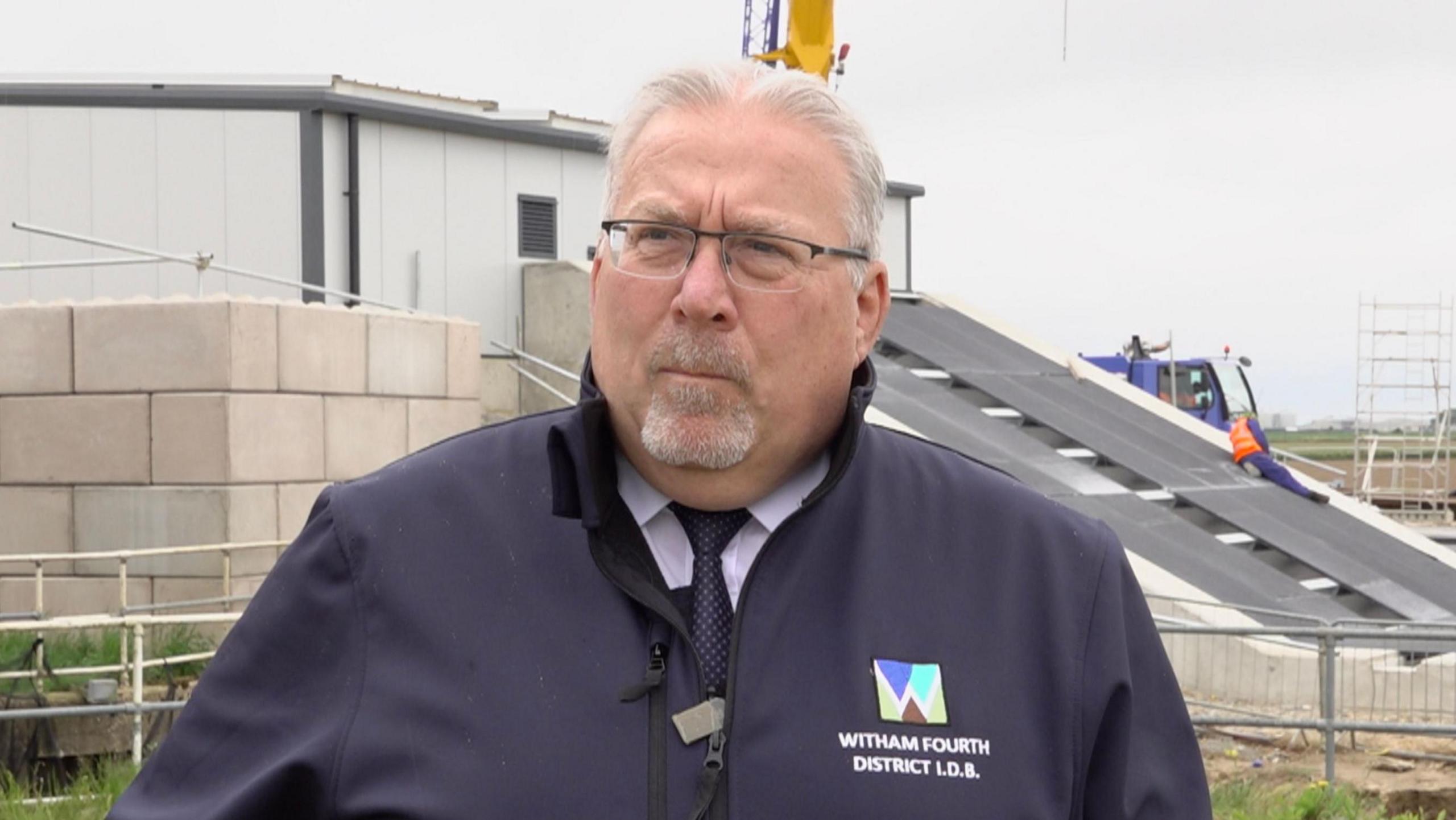
Peter Bateson from the Witham Fourth Drainage Board wants "certainty of funding"
Analysis by Paul Murphy, Environment Correspondent
Large parts of this county are on or below sea level and every drop of rain that falls on Lincolnshire needs to be carefully managed.
But, in recent years, every aspect of this region's ability to do that has been tested, with record rainfall damaging at least a dozen flood defences on Lincolnshire's rivers in the last six months alone.
More than 800 homes in the county were internally flooded last winter, according to Lincolnshire County Council.
Communities that had never been vulnerable in the past have found themselves inundated with floodwater and even sewage.
Some of the most productive farmland in the UK - vital for national food security - has been destroyed and crops have failed.
There have been big investments in flood defences, most notably the £100m Boston Barrier that protects the town from tidal surges.
But according to a recent report by the Climate Change Committee much more will need to be spent on flood defences if the UK is to keep pace with extreme weather. It estimates that climate events could cost £1bn a year by 2050.
Flood risk is unlikely to be on the front page of many party manifestos as they are published in the days ahead, but in this flat and vulnerable county there will be many who wish it was taken more seriously.
You can use the BBC News lookup tool to find out which constituency you are in, who is standing as a candidate in your area and which polling station you can vote at.
Follow BBC Lincolnshire on Facebook, X (formerly Twitter), external, and Instagram. Send your story ideas to eastyorkslincs.news@bbc.co.uk, external